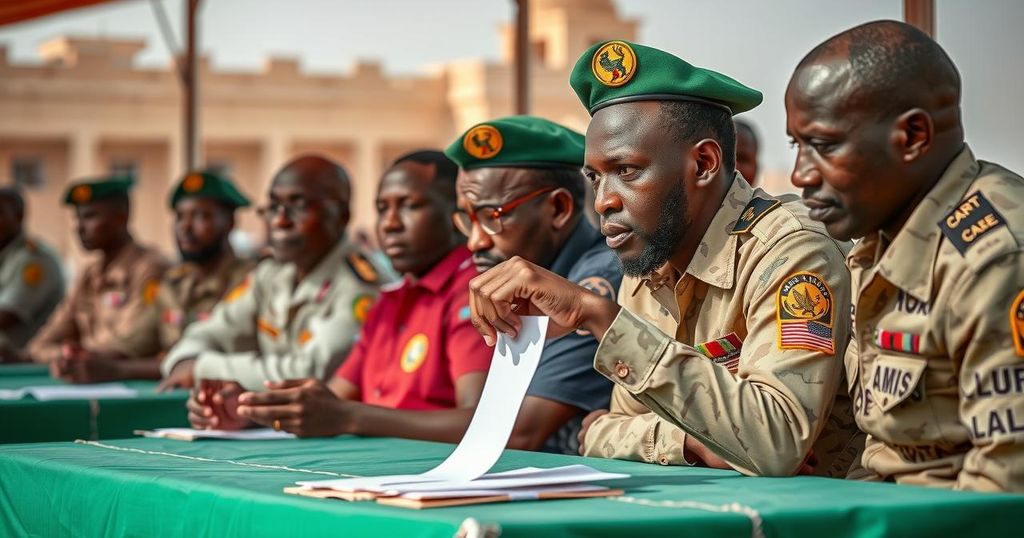Chad held a general election amid low voter turnout due to opposition boycotts, with turnout reported at 38% as of midday. President Mahamat Idriss Deby Itno called the election historic, but opposition figures expressed doubts about its legitimacy, claiming results were pre-decided. The public remains skeptical about the electoral process, with significant calls for change amidst socio-economic challenges and security issues in the region.
Chad held a general election on Sunday amidst calls for a boycott by opposition parties, who suggested that the electoral outcomes had been predetermined. The government portrays this election as a crucial step towards restoring civilian governance following three years of military rule. However, voter turnout was disappointing, with reports estimating participation at only 38% as of midday. Detractors, including opposition leader Succes Masra, voiced concerns about prevalent voter apathy, attributing it in part to the existing political climate and lack of faith in the electoral process.
The current president, Mahamat Idriss Deby Itno, is attempting to solidify his power after assuming control in 2021 following his father’s death. He characterized the occasion as historic and encouraged citizens to participate actively in the electoral process. Meanwhile, opposition candidates decried the electoral integrity, claiming that the results had already been manipulated.
Participants in the election included soldiers, police, and nomads, who voted on a different timeline for logistical reasons. Election officials cited high turnout numbers among these groups, noting 72% participation in the military sector. Moreover, some constituents expressed hope for change, citing critical social issues such as unemployment and justice. However, widespread skepticism remains among the populace regarding the efficacy of the electoral process in bringing about meaningful change.
The election unfolds in a complicated context marked by security threats from Boko Haram, ongoing political tension with France, and allegations of Chadian involvement in Sudan’s conflicts. Observers have noted significant allegations of electoral fraud, further undermining the legitimacy of the electoral process in Chad.
Chad’s government has positioned this election as the pivotal final step toward democratic transition, following the military’s prolonged rule. Despite public disenchantment, officials are keen to frame the outcome as reflective of a democratic awakening for the nation and its populace, which has long endured hardship under authoritarian regimes.
This general election is set against the backdrop of three years of military rule in Chad, instituted after the death of long-standing leader Idriss Deby. Following his father’s death in 2021, Mahamat Idriss Deby Itno took power and subsequently faced allegations of electoral fraud during a presidential contest in May 2023. The government has emphasized the importance of these elections in transitioning to democracy, though significant segments of the population and opposition parties view the electoral process with skepticism. Political unrest and security challenges, such as threats from Boko Haram, further complicate the political landscape in Chad, creating an environment of uncertainty regarding the prospects of free and fair governance.
The recent general election in Chad illustrates a complex interplay between government assertions of democratic transition and widespread public disillusionment. Despite official claims of civic engagement, low turnout figures highlight the prevailing skepticism among voters, particularly influenced by opposition calls to boycott. The climate of distrust, alongside accusations of pre-determined electoral outcomes, raises serious questions about the legitimacy of Chad’s political evolution post-military rule. This election remains a crucial moment for Chad’s political future, as the nation grapples with pressing socio-economic challenges and security threats.
Original Source: www.wyomingnewsnow.tv






